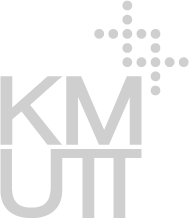With the challenge of today’s more competitive and more globalized working environment, English-language teachers need extra skills to compete and survive. One of the essential abilities is researching skill.
The Ph.D. program at KMUTT has the following goals:
- To promote significant doctoral-level research into major areas of applied linguistics in English-language teaching and learning.
- To produce graduates with a profound understanding of applied linguistics and learner-centredness so they can teach and conduct research in applied linguistics effectively, and are able to apply the new knowledge in their teaching situation.
- To produce graduates who themselves are able to produce trainers who can develop personnel in this field.
Focus on research: The candidates have a choice of joining either research with taught courses or research-only programs.
Plan A – Pure research caters for candidates who possess solid knowledge of research
Plan B – Research with taught courses offers a variety of courses for the candidates to gain more insight into their areas of interest
Fields of specialization: KMUTT has extensive fields of specialization for you to choose from, including:
- Foreign Language Pedagogy: research into teaching 4 skills of English; learning styles and learning strategies; language processing; language acquisition; task-based and project-based language teaching; program administration; evaluation and language assessment.
- Independent/Autonomous Learning: study of application of autonomy in ELT; learner training and self-access learning; autonomy and culture; political issues in autonomy, social autonomy, and teacher autonomy.
- Using Technology in Language Teaching and Learning: uses of CALL and non-CALL; learning through CALL; intelligent CALL; online learning and its support; corpus linguistics; computer-mediated communication.
- Teacher Training: study of approaches to teacher education, ranging from models of training and development through to awareness-raising; reflective approach to counseling and mentoring skills.
- Discourse Analysis: study of both spoken and written discourse; approaches to discourse analysis; genre analysis; conversation analysis; ethnographic analysis and critical discourse analysis; implications of discourse analysis for linguistics and language teaching.
- Learner-centered teaching approach: Learners are at the center of our teaching, which emphasizes discovery learning. Candidates will gain hands-on experience of this teaching approach, which they can later use as a training model.
- International environment: Teaching and learning are conducted in English throughout the program. Candidates are encouraged, and will be subsidized, to present their research in an international conference. With partial sponsorship from the Department of Language Studies, candidates will also have an opportunity to spend some time in an English-speaking country such as Singapore, Australia or New Zealand. They can also work with professors in universities that have contacts with KMUTT.



